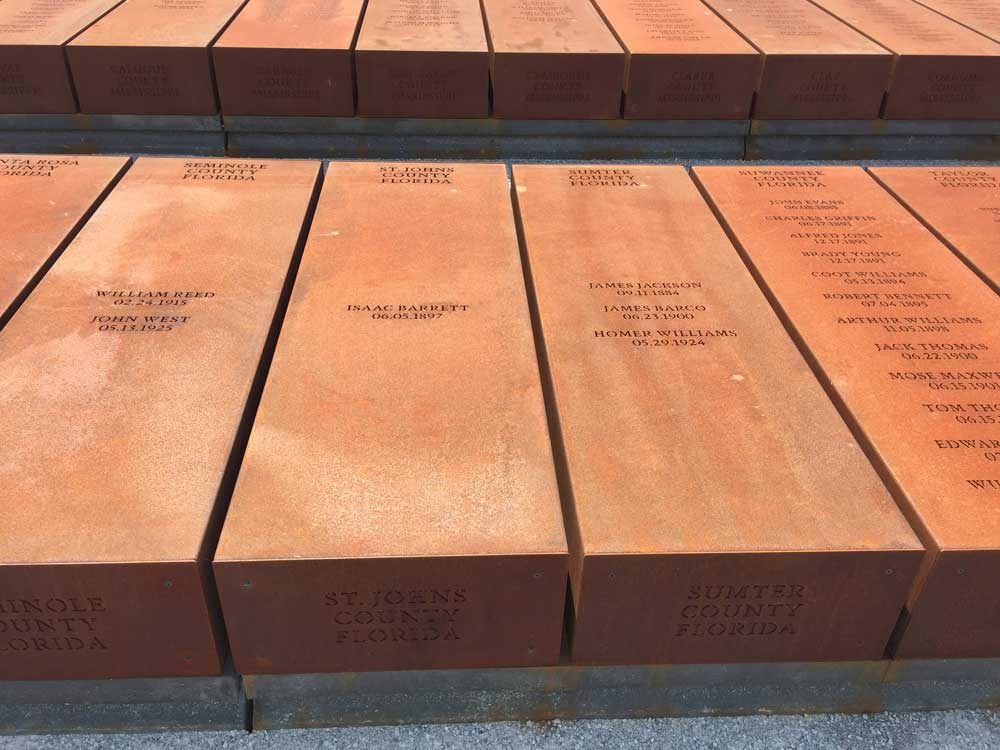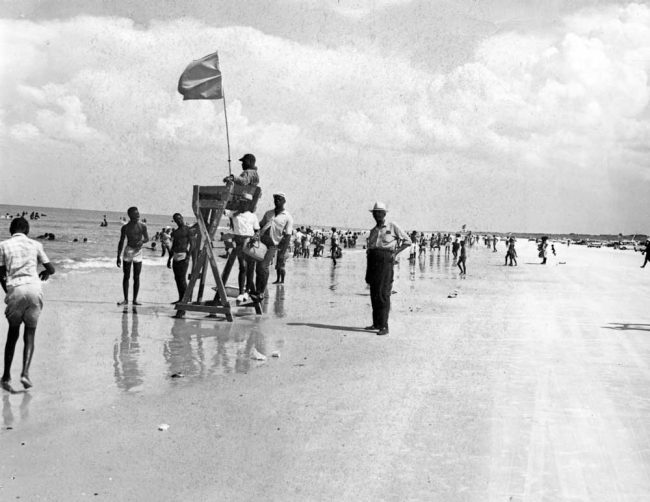
Following the recommendation of Will Furry, its chair, the Flagler County School Board will send a letter of support to a state task force in hopes of luring the future Museum of Black History to St. Johns County. St. Johns was ranked first among three finalists for the location. Its competitors are Eatonville in Orange County and Opa-locka in Miami-Dade County.
The Legislature approved a bill last year creating the Black History Task Force within the Department of State. The nine-member Task Force includes Palm Coast’s Howard Holley, the marketing consultant, who School Board member Colleen Conklin said is “driving that train pretty hard.” The task force’s responsibility is to recommend the planning, construction and operation of the Florida Museum of Black History, which would become the sixth museum directly operated by the Florida Division of Historical Resources, including the Museum of Florida History in Tallahassee.
That task force is different from the African American History Task Force created by the Legislature in 1994, and operating under the purview of the Department of Education. That task force is responsible for promoting awareness of Black history and issuing instructional guideline. It’s ongoing. The more recent task force will disband once its objective is met.
“It’s come down to just a couple handful of counties left and they have a really good shot at getting this funding to build this,” Furry said of St. Johns County. He had recently met with St. Johns County Commission Chair Sarah Arnold, who he said has been spearheading the effort to bring the museum to the county. “With the board’s wishes, I’d like to direct staff to write a letter of recommendation supporting that location for this museum and just highlighting how we can use that to advance academics in Black history through field trips and other interactions with that museum.”
Florida A&M University students are at work on creating renderings for each of the three potential locations for the museum, which the task force will review this month. St. Johns would locate the museum on historic grounds: Arnold’s commission approved a potential purchase of property at Florida Memorial University, the historically Black college in Miami Gardens that operated in the western part of St. Augustine as Florida Normal and Industrial Institute–then Florida Normal Industrial and Memorial College–from 1918 to 1968, and was a center of civil rights activities there.
It was for that very reason–the students’ activism–that the campus was relocated to Miami Gardens in 1964-5, ostensibly for the students’ safety. Ironically, the campus moved to a 48-acre former air strip near Opa-locka, one of the three finalists for the museum.

Zora Neale Hurston was among the college’s instructors when it was in St. Augustine, though as most of her fans tend not to know or prefer not to know, Hurston was not a civil rights advocate: she was a was a “thoroughly black waw-man who would gladly have peddled her wares on Fox News today,” the linguist and scholar John McWhorter wrote. She opposed Brown v. Board of Education, the Supreme Court decision desegregating schools, and in her later years she became an outright reactionary, praising Spessard L. Holland, the racist and segregationist Florida senator and governor. It’ll be curious to note how, or to what extent, the future museum balances historical realities with the politically incorrect.
There are many reasons St. Johns County is seen as a leading location, among them the fact that, according to a legislative analysis, the first legally sanctioned, free African American settlement in the nation was Fort Mose in St. Augustine in 1738. In February 2006, then-Gov. Jeb Bush participated in the groundbreaking for a visitor center commemorating the 40-acre site of Fort Mose, whose Black residents fended off British attacks during the 18th century and played a pivotal role in the peninsula’s history, before it became a state. The Fort Mose Historical Society now documents that heritage.
St. Augustine and St. Johns counties were, like other Florida regions, deeply segregated and disproportionately controlled by the KKK in the first half of the last century until State Attorney Dan Warren of Daytona Beach (whose family members have been storied lawyers and judges in the circuit) broke the group’s grip on the city in 1964.
St. Augustine currently has the modest ACCORD Civil Rights Museum and Freedom Trail–it opened on the 50th anniversary of the passage of the Civil Rights Act in 1964–the Al Lewis Archway, the last remnant of the old Florida Normal and Industrial Institute, Butler Beach, once the only stretch of beach between Daytona Beach and Jacksonville–including all of Flagler County’s 18 miles of beachfront–where Blacks could swim, the Excelsior School Building, St. Augustine’s first Black public high school–it has its own museum and cultural center–, and many other locations key to Black history in Florida.
St. Johns County completed a cultural marketing study in 2020 positioning the county as a destination for Black history buffs. “St. Johns County has the assets and product to compete as a world-class African American Heritage destination,” the study read. “It is difficult to name a destination in the United States with a more varied and rich history of the African American experience than St. Johns County.”
Conklin, the Flagler County School Board member, called it a “no-brainer” to bring the Museum of Black History to St. Augustine. Furry is hoping other local governments will send letters of support as well.
![]()





























Callmeishmael says
Wonder if they will be able to teach CRT to the students who visit this museum should it be located in St. Augustine.
In 1985, I wrote a review for the local paper of David R. Colburn’s “Racial Change & Community Crisis: St. Augustine, Florida, 1877-1980.”
It was not received well by some of the newroom’s long-timers, as they felt the book stirred up some old history that was better left forgotten. Fortunately, my editor disagreed and published the piece.
Deborah Coffey says
My thought, exactly. I love the idea of a Black History Museum but now it seems that all of our students will have to travel to it in order to get an ounce of truth since they will not get truth in schools. Glad your review got published in 1985. Could we re-publish it today?
Endless Dark Money says
its going to be great! it will highlight all the benefits of slavery and how they even helped white families today pass the wealth they gained from slavery through the generations. Can show how they learned crucial farming skills that really helped their masters.